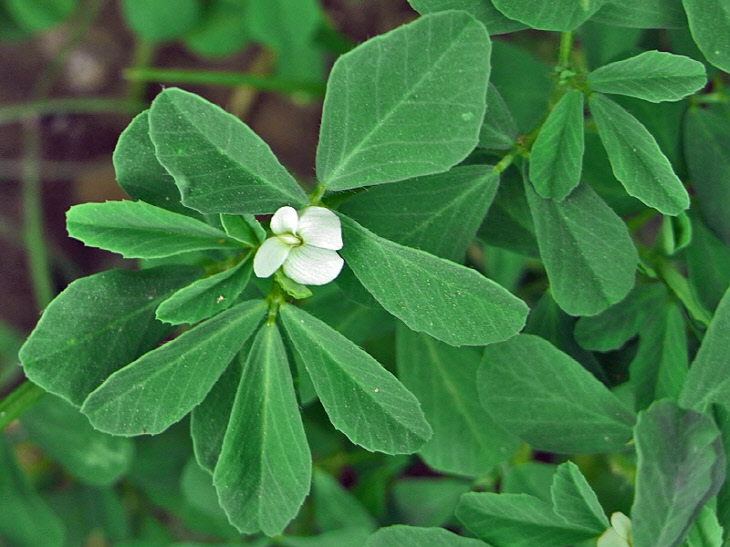Fenugreek 훼누그릭 - 소화불량, 당뇨, 콜레스트롤 감소
페이지 정보
작성자pistory 댓글 0건 조회 2,762회 작성일 14-03-18 22:03본문
Fenugreek is used to treat many conditions including constipation, digestive disorders, bronchitis, inflamed lungs, fevers, high cholesterol, eyestrain, sore throats, wounds, boils, and rashes.
Fenugreek stimulates the uterus, promotes water retention and is used to aid in weight gain; it also reduces blood sugar levels, and lowers cholesterol. It is most commonly used as a spice, in a tea, as massage oil, an inhalant, a poultice, or a plaster. Fenugreek is also use in conjunction with other plants such as peppermint, lemon, and anise.
Fenugreek reduces kapha and vatha, and increases pitta, which are the three life energies used by Ayurvedic practitioners. Fenugreek helps asthma and sinus problems by reducing mucus. The seeds can be eaten by nursing mothers to increase milk production. A fenugreek poultice can be used to treat boils and rashes and gargling a fenugreek decoction will soothe sore throats. Fenugreek decoctions have many healing uses, for example to treat arthritis and aching joints, to bring on menstruation, to lower cholesterol, or to ease sore throats and laryngitis. To make a decoction, bruise 2 tablespoons of fenugreek seeds and add 4 cups of water. Bring this mixture to a boil, then cover and simmer for 10 minutes. Drink up to 3 cups a day. You can add honey, lemon, or licorice to sweeten if it is too bitter for you.
A few cautions should be observed when using fenugreek medicinally. Fenugreek seeds may cause water retention and excess weight gain, which is obviously not wanted by some people. Because of fenugreek's use as a uterine stimulant, fenugreek should never be taken by pregnant women. Also, never give fenugreek to kids that are under two years old.
Fenugreek is another healing herb whose qualities were brought to the attention of humans by animals. Farmers noticed that sick cattle would eat fenugreek plants even when they would not eat anything else. So fenugreek began to be used as a digestive aid and as a laxative. Fenugreek seeds contain a lot of bulk and mucilage, and, when mixed with water or saliva, become gelatinous and ease sluggish bowels.
Fenugreek is both antiseptic and warming. Fenugreek also has expectorant qualities. It is anti-inflammatory, antiseptic, and soothing. The soothing expectorant qualities aid in promoting menstruation, as well as easing coughs, sore throats, and digestion by encouraging flow in the body. The part of the fenugreek plant used is the seeds.
Fenugreek is used to treat many conditions including constipation, digestive disorders, bronchitis, inflamed lungs, fevers, high cholesterol, eyestrain, sore throats, wounds, boils, and rashes. Fenugreek stimulates the uterus, promotes water retention and is used to aid in weight gain; it also reduces blood sugar levels, and lowers cholesterol. It is most commonly used as a spice, in a tea, as massage oil, an inhalant, a poultice, or a plaster. Fenugreek is also use in conjunction with other plants such as peppermint, lemon, and anise.
- 이전글치커리 Chicory - 피를 맑게, 시력회복, 변비효과 14.03.18
- 다음글Philadelphia Flower Show - 2014 꽃 디자인 특별상 14.03.12
댓글목록
등록된 댓글이 없습니다.


